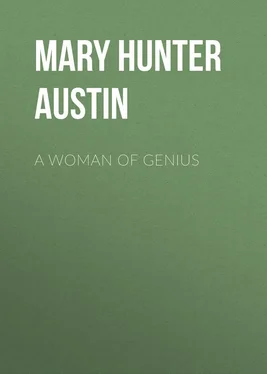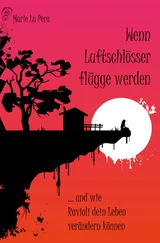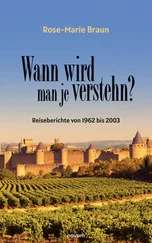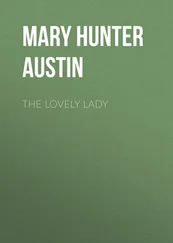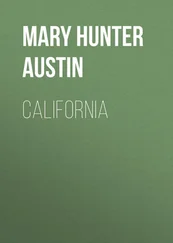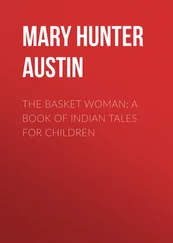Mary Austin - A Woman of Genius
Здесь есть возможность читать онлайн «Mary Austin - A Woman of Genius» — ознакомительный отрывок электронной книги совершенно бесплатно, а после прочтения отрывка купить полную версию. В некоторых случаях можно слушать аудио, скачать через торрент в формате fb2 и присутствует краткое содержание. Жанр: foreign_antique, foreign_prose, на английском языке. Описание произведения, (предисловие) а так же отзывы посетителей доступны на портале библиотеки ЛибКат.
- Название:A Woman of Genius
- Автор:
- Жанр:
- Год:неизвестен
- ISBN:нет данных
- Рейтинг книги:4 / 5. Голосов: 1
-
Избранное:Добавить в избранное
- Отзывы:
-
Ваша оценка:
- 80
- 1
- 2
- 3
- 4
- 5
A Woman of Genius: краткое содержание, описание и аннотация
Предлагаем к чтению аннотацию, описание, краткое содержание или предисловие (зависит от того, что написал сам автор книги «A Woman of Genius»). Если вы не нашли необходимую информацию о книге — напишите в комментариях, мы постараемся отыскать её.
A Woman of Genius — читать онлайн ознакомительный отрывок
Ниже представлен текст книги, разбитый по страницам. Система сохранения места последней прочитанной страницы, позволяет с удобством читать онлайн бесплатно книгу «A Woman of Genius», без необходимости каждый раз заново искать на чём Вы остановились. Поставьте закладку, и сможете в любой момент перейти на страницу, на которой закончили чтение.
Интервал:
Закладка:
CHAPTER II
Of Taylorville, where I grew up and was married, the most distinguishing thing was that there was nothing to distinguish it from a hundred towns in Ohianna. To begin with, it was laid out about a square, and had two streets at right angles known as Main and Broad. Broad Street, I remember, ran east and west between the high school and the railway station, and Main Street had the Catholic cemetery on the south, and the tool and hoe works on the north to mark – there was no other visible distinction – the points at which it became country road. There were numerous cross streets, east and west, called after the Governors, or perhaps it was the Presidents, and north and south, set forth on official maps as avenues, taking their names from the trees with which they were falsely declared to be planted, though I do not recall that they were ever spoken of by these names except by the leading county paper which had its office in one corner of the square over the Coöperative store, was Republican in politics, and stood for Progress.
The square was planted with maples; a hitching rack ran quite around it and was, in the number and character of the vehicles attached to it, a sort of public calendar for the days of the week and the seasons. On court days and elections, I remember, they quite filled the rack and overflowed to the tie-posts in front of the courthouse, which stood on its own ground a little off from the square, balanced on the opposite side by the Methodist Church. It was a perfect index to the country neighbourhoods that spread east and north to the flat, black corn lands, west to the marl and clay of the river district, and south to the tall-weeded, oozy Bottoms. Teams from the Bottoms, I believe, always had cockleburs in their tails; and spanking dapple grays drove in with shining top-buggies from the stock farms whose flacking windmills on the straight horizons of the north, struck on my childish fancy as some sort of mechanical scarecrow to frighten away the homey charms of the wooded hills. I recall this sort of detail as the only thing in my native town that affected my imagination. When I saw the flakes of black loam dropping from the tires, or the yellow clay of the river district caked solidly about the racked hubs, I was stirred by the allurement of travel and adventure, the movement of human enterprise on the fourwent ways of the world.
From my always seeming to see them so bemired with their recent passages, I gather that my observations must have been made chiefly in winter on my way to school. From other memories of Taylorville arched in by the full-leaved elms and maples, smelling of dust and syringas, and never quite separable from a suspicion of boredom, I judge my summer acquaintance with its streets to have been chiefly by way of going to church, for, until the winter I was eleven years old, Taylorville, the world in fact, meant Hadley's pasture.
It lay back of that part of the town where our house was, contiguous to a common of abandoned orchard and cow lot, and if it lacked anything of adventurous occasion and delight, we, Forrie and Effie and I, the McGee children, and the little Allinghams, did not know it. There was a sort of convention of childhood that we should never go straight to it by the proper path, but it must always be taken by assault or stealth: over the woodhouse and then along the top of the orchard fence as far as you could manage without falling off, and then tagging the orchard trees; I remember there were times when we felt obliged to climb up every tree in our way and down on the other side, and so to the stump lot where the earliest violets were to be found – how blue it would be with them in April about the fairy ring of some decaying trunk! – and beyond the stump lot, the alder brook and the Stone-pit pond where we caught a pike once, come up from the river to spawn. Up from the brook ranged a wood over the shallow hills, farther and darker than we dared, and along its banks was every variety of pleasantness. There was always something to be done there, springs to be scooped out, rills to be dammed; always something to eat, sassafras root, minnows taken by hand and half cooked on surreptitious fires, red haws and hazelnuts; always some place to be visited with freshness and discovery, dark umbrageous corners to provide that dreaded and delighted panic of the wild.
But perhaps the best service the pasture did us was as a theatre for the dramatization of the bourgeoning social instinct. We played at church and school in it, at scalping and Robinson Crusoe and the Three Bears. We went farther and played at High Priests and Oracles and Sacrifice – and what were we at Taylorville to know of such things?
If this were to be as full an account of my Art as it is of myself, I should have to stop here and try to have you understand how at this time I was all awash in the fluid stuff of it, buoyed and possessed by unknowledgable splendours, heroisms, tendernesses, a shifty glittering flood. I am always checked in my attempt to render this submerged childhood of mine by the recollection of my mother in the midst of the annoyance which any reference to it always caused her, trying judicially to account for it on the basis of my having read too much, with the lurking conviction at the bottom of all comment that a few more spankings might have effectually counteracted it. But though I read more than the other children, there was never very much to read in Taylorville at any time, and no amount of reading could have put into my mind what I found there – the sustaining fairy wonder of the world.
I was not, I think, different in kind from the other children, except as being more consistently immersed in it and never quite dispossessed. I have lost and rediscovered the way to it some several times; have indeed, had to defend its approaches with violence and skill: this whole business of the biography has no other point, in fact, than to show you how far my human behaviour has been timed to keep what I believe most people part with no more distressfully than with their milk teeth. Effie, I know, has no recollection of this period other than that there was a time when the earth was hung with vestiges of splendour, and if my brother has kept anything of his original inheritance, he would sooner admit to a left over appetite for jujubes and liquorice; for Forester is fully of the common opinion that the fevers, flights and drops of temperament are the mere infirmity of Gift. There was a time, before I left off talking to Forester at all about my work, when he visibly permitted his pity to assuage his disgust at the persistence of so patent a silliness in me, and still earlier, before I owned three motor cars, an estate in Florida and a house on the Hudson, there were not wanting intimations of its voluntary assumption as a pose; pose in Forester's vocabulary standing for any frame of behaviour to which he is not naturally addicted. But there it was, the flux of experience rising to the surface of our plays, the reservoir from which later, without having personally contemplated such an act, I drew the authority for how Lady Macbeth must have felt, about to do a murder, from which if I had had a taste for it, I might have drawn with like assurance the necessity of the square of the hypotenuse to equal the squares of the other two sides.
It is curious that, though I cannot remember how my father looked nor who taught me long division, I recall perfectly how the reddening blackberry leaves lay under the hoar frost in Hadley's pasture, and the dew between the pale gold wires of the grass on summer mornings, and the very words and rites by which we paid observance to Snockerty. I am not sure whether Ellen McGee or I invented him, but first and last he got us into as much trouble as though we had not always distinctly recognized him for an invention. The McGees lived quite around the corner of the pasture from us, and, as far as my memory serves, the whole seven of them had nothing to do but lie in wait for any appearance of ours in the stump lot; though in respect to their father being a section boss, and the family Catholic, we were not supposed, when we put on our good clothes and went out of the front gate, to meet them socially. I think there must have been also some parental restriction on our intercourse of play, for they never came to our house nor we to theirs; the little Allinghams, in fact, never would play with them. They came to play with us and only included the McGees on the implication of their being our guests. If at any time we three Lattimores were called away, Pauline, who was the eldest, would forthwith marshal her young tribe in exactly the same manner in which she afterward held Henry Mills in the paths of rectitude, and march them straight out of the big gate to their home. I remember how I used perfectly to hate the expression of the little Allinghams on these occasions and sympathize with the not always successfully repressed jeers of the McGees. Mrs. Allingham was the sort of woman who makes a point of having the full confidence of her children – detestable practice – and I have always suspected, in spite of the friendliness of the families, that the little Allinghams used to make a sort of moral instance of us whenever they fell into discredit with their parents. At any rate the report of our doings in Hadley's pasture as they worked around through her to our mother, would lead to episodes of marked coolness, in which we held ourselves each loftily aloof from the other, until incontinently the spirit of play swirled us together again in a joyous democracy.
Читать дальшеИнтервал:
Закладка:
Похожие книги на «A Woman of Genius»
Представляем Вашему вниманию похожие книги на «A Woman of Genius» списком для выбора. Мы отобрали схожую по названию и смыслу литературу в надежде предоставить читателям больше вариантов отыскать новые, интересные, ещё непрочитанные произведения.
Обсуждение, отзывы о книге «A Woman of Genius» и просто собственные мнения читателей. Оставьте ваши комментарии, напишите, что Вы думаете о произведении, его смысле или главных героях. Укажите что конкретно понравилось, а что нет, и почему Вы так считаете.
